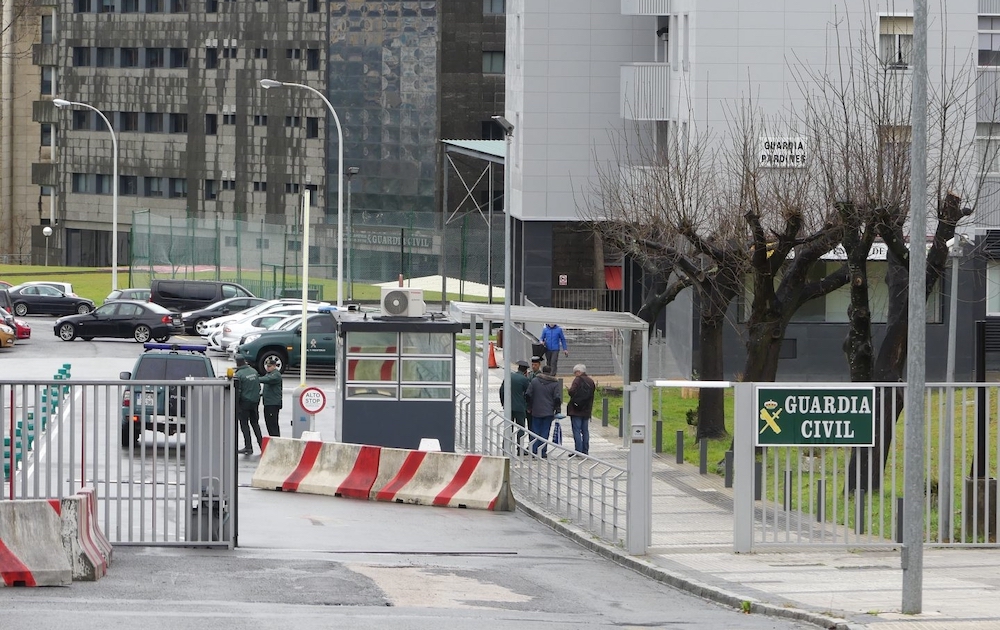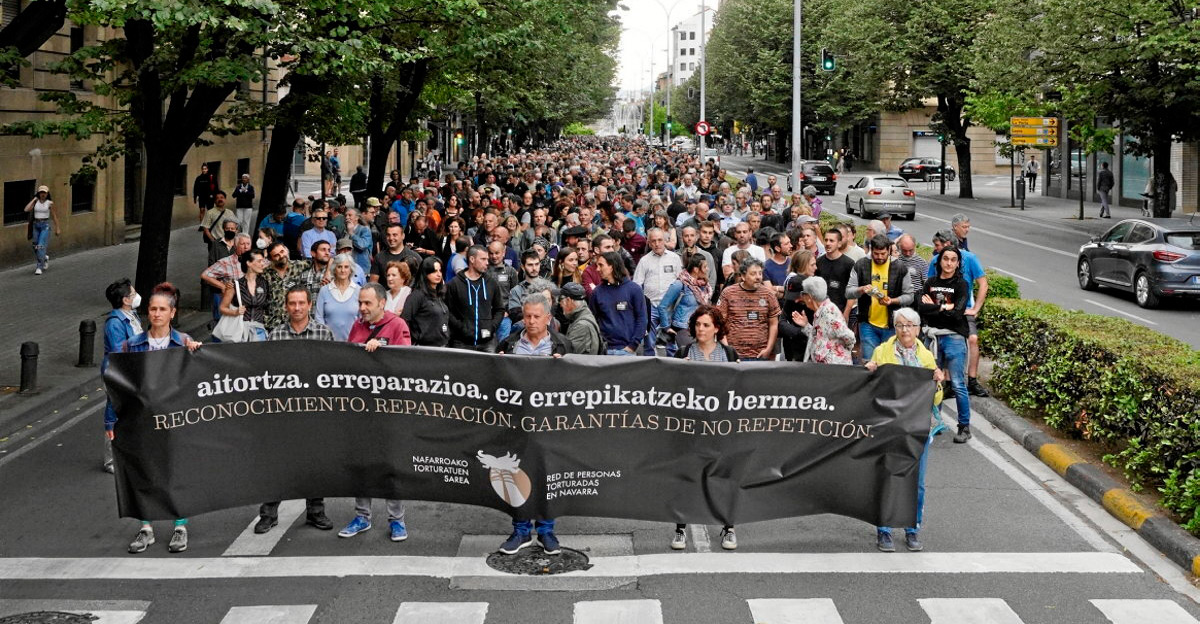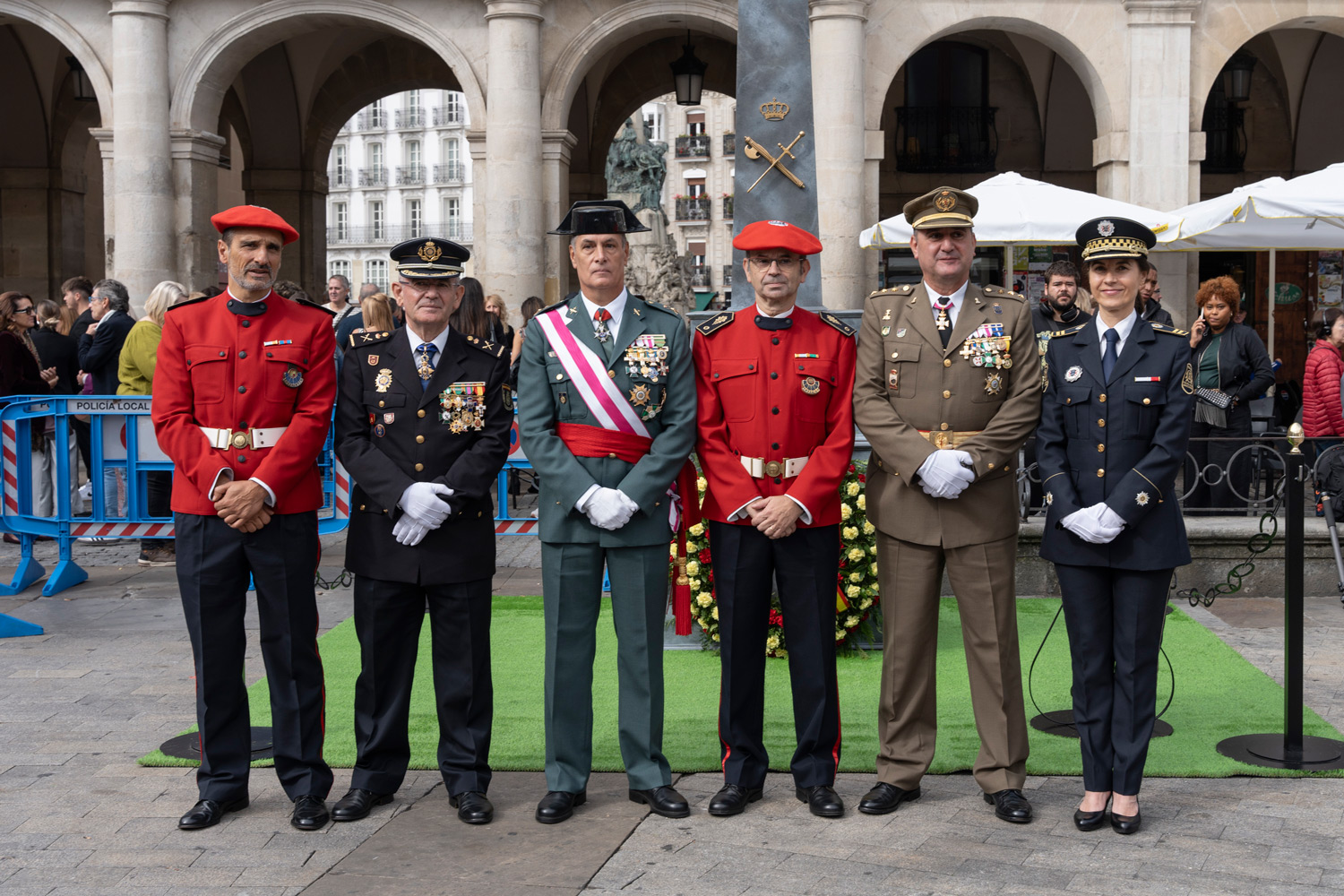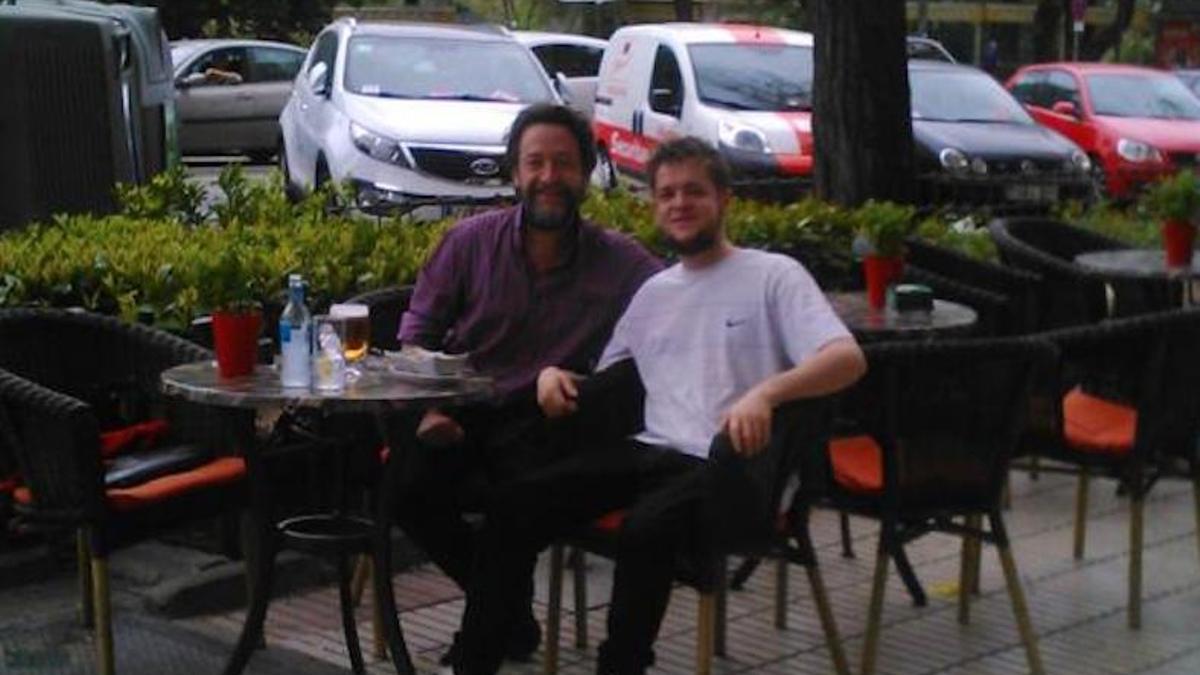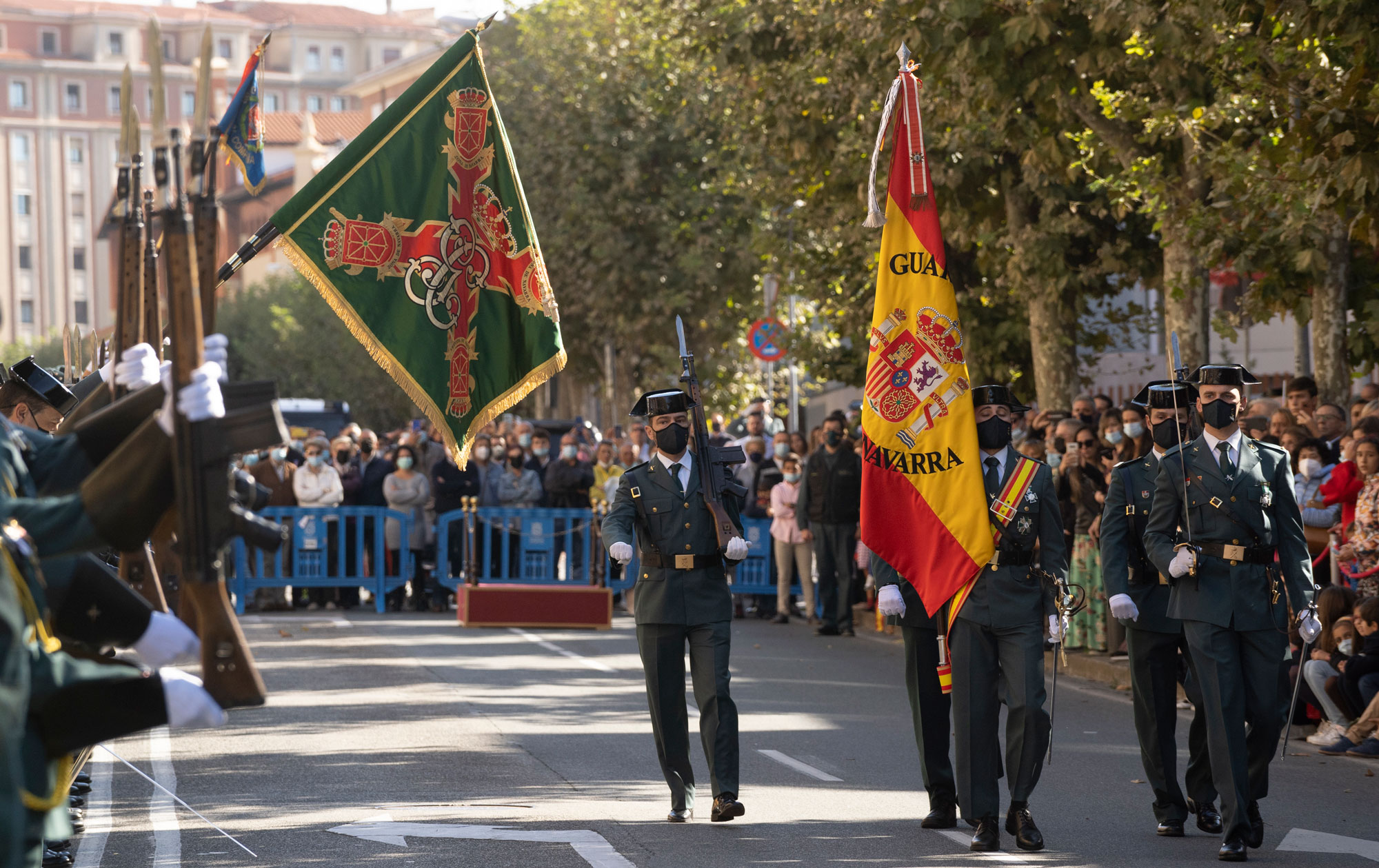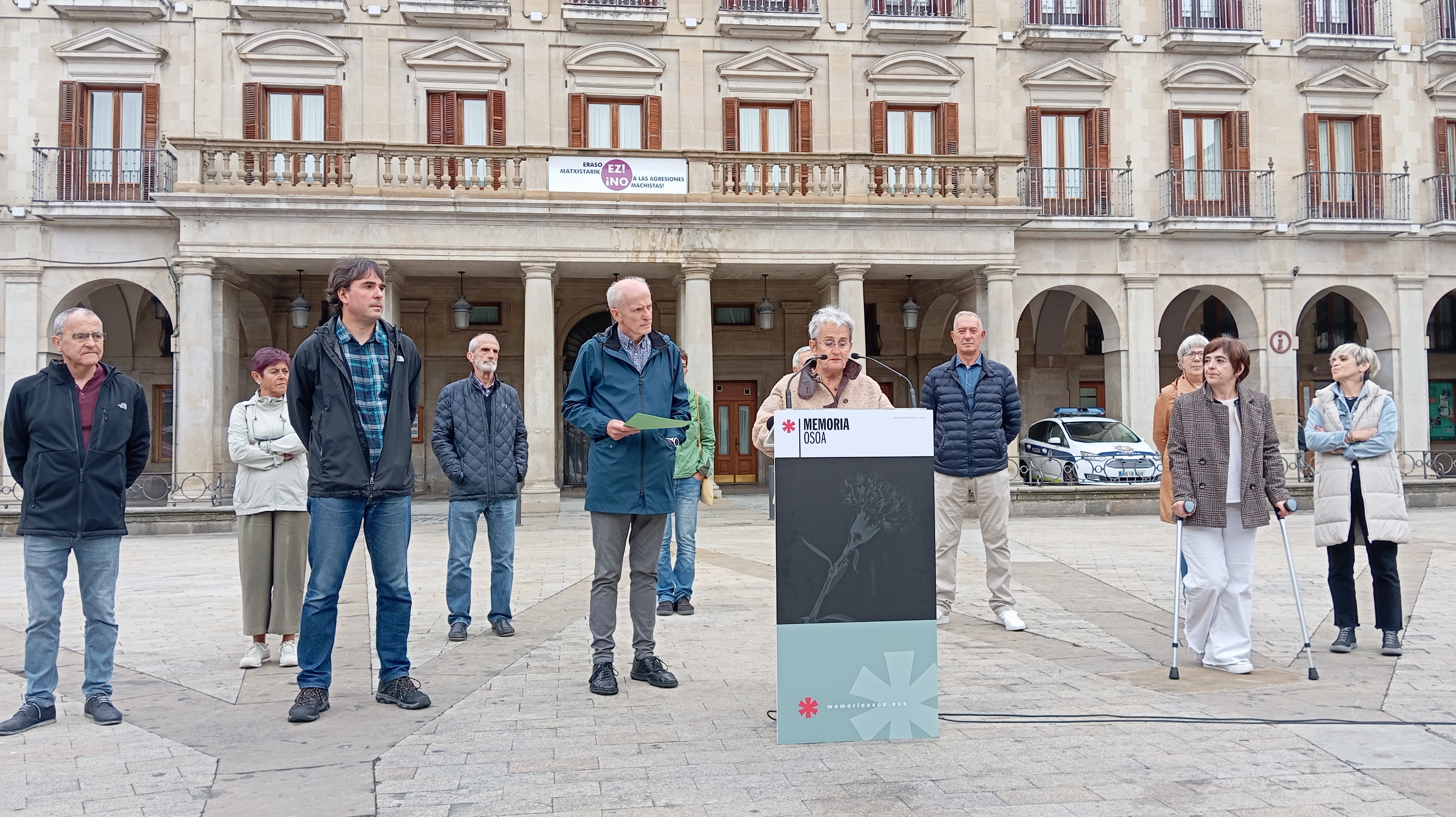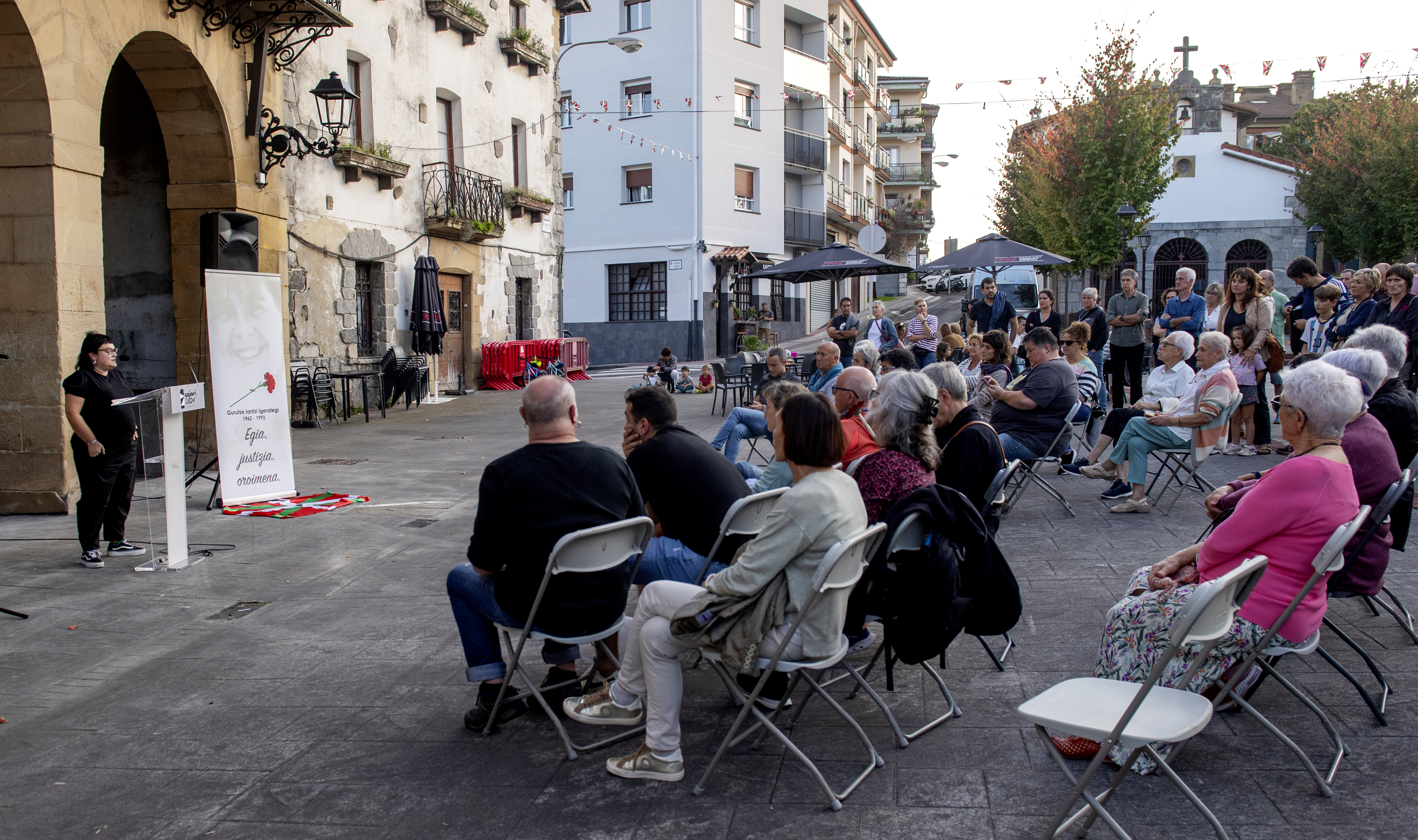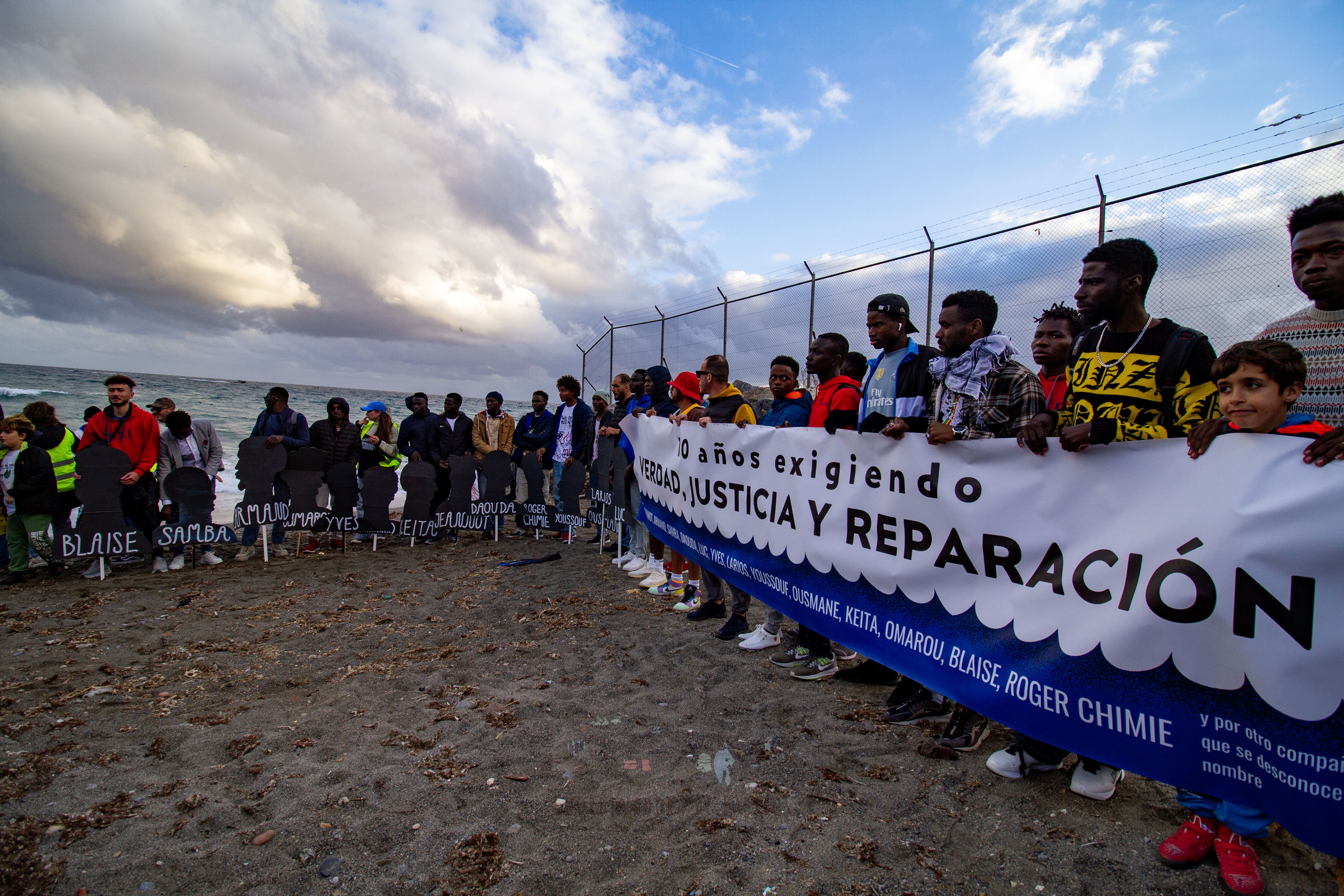The Civil Guard and the military will buy thousands more rubber bullets
- During this year, the Civil Guard has allocated more than 18,000 euros to the purchase of rubber balls, within the "riot control" material. The Navy will buy 1,500 rubber balls. The regulations governing the means employed by the police are not public.

The police and military forces of the Spanish State currently have thousands of rubber balls and it seems that the Ministry of the Interior and the Ministry of Defence will increase the "riot control" material. The Basque Government estimates that tens of thousands of euros will be spent on the purchase of arms, including rubber and rubber balls.
On 12 August, in the middle of the summer, the Navy’s Chief of Logistics Assistance opened a new tendering process for the acquisition of 1,500 rubber balls and 1,000 push cartridges for the “riot control” shotguns. The contract was awarded at the beginning of this month to the company Falken, for an amount of EUR 7,163.
In 2020, the Spanish Royal Navy also made a giant purchase, acquiring 10,000 rubber balls and 10,000 cartridges. To justify the waste, the Ministry of Defence argued that marine infantry units should participate in the UN's "Peace-keeping Operation 2020", which included, among other tasks, "mass control". By means of weapons, of course.
In addition to rubber balls and cartridges, the Navy requested more "riot control" weapons: tear gas, "self-defense aerosol", etc.
Civil Guard and National Police Weapons
The Civil Guard, for its part, included in its plan for 2024 a consignment of 18,143 euros for the purchase of "riot green rubber balls". In addition, EUR 54,268 will be allocated for the purchase of 12/70 calibre cartridges. These cartridges are carried in rubber bullets. The arms catalogues indicate that, in theory, these weapons should be fired at at a distance of at least 25 meters: otherwise, they say the injuries caused are "more serious".
In 2022, the Ministry of the Interior made other major acquisitions to increase the weapons of police forces. For example, it launched a tender to buy 39,000 black rubber balls and in the official justification report of the Spanish Police specified who was going to use them: A NATO summit was planned for 2022 in Madrid. The Police envisaged mobilizations against it and the response: "dismantle and divide" the masses by, inter alia, rubber balls.
Risk, background and silence
Numerous groups and institutions have warned of the risk of rubber balls due to the "lack of concretion" of this type of weapons. According to the Rubber Stop Balas report, between 1976 and 2017 police forces have killed 23 people through rubber balls in the Spanish state and dozens of people have been injured. Some of them suffered serious injuries such as the loss of one eye.
Among them, in the last two decades, "in contexts of protest and celebration of football events" have been 22 people who have suffered some injury from rubber balls launched by the Police. The study also recalls the events that occurred in 2014 on the coast of Ceuta: The Civil Guard killed fourteen migrants trying to cross the border by swimming, and also wounded four others.
This report also gives the following warning: "The regulations that regulate the means used by the State Security Forces and Bodies are not public and, therefore, it is not possible to determine whether they meet international standards."
Foam launch in Araba, Bizkaia and Gipuzkoa
The majority of the units of the autonomic police forces, in theory, have restricted the use of rubber balls in the CAV, Navarra and Catalonia. In the CAV, within the Ertzaintza, only specialized units of the Mobile Brigade could use rubber shotguns to launch rubber balls and only in "exceptional" cases. Iñigo Cabacas was killed by the Ertzaintza in 2012 in Bilbao (Bizkaia) by a pelotazo, after which the use of the aforementioned weapon was limited in 2014.
However, Ertzaintza agents continue to use rubber balls in the Zorroza area. Last March, for example, Ertzaintza agents attacked protesters who remembered the workers killed in the Vitoria-Gasteiz (Álava) massacre with rubber balls and foam shells. The use of this last weapon, that of foam shells, has been widespread in recent years by the Basque Government.
Foam projectiles are supposedly more accurate than rubber balls, and authorities have often repeated that they are not "as harmful" as on other occasions. All those injured in the last few months through this weapon, however, have not been able to prove that this is the case. The Ertzainas have wounded three people in the Carnavales de Tolosa (Gipuzkoa) and three others in Donostia-San Sebastián (Gipuzkoa) on 5 March, before the match between the Real Sociedad and the PSG.
“In the newsletter today at noon, you will see the mayor of your capital, offering the main plaza of the city to the military body that tortured us. In today’s information at noon, you will see the structure that murdered our friends and relatives unravel through our... [+]










